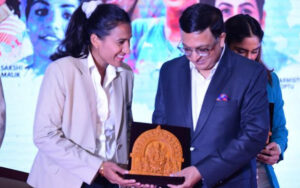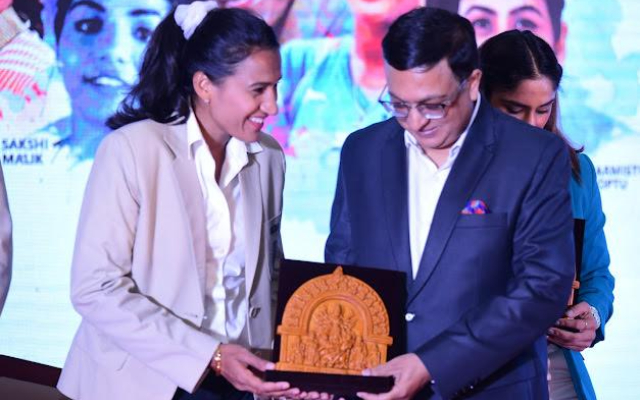
Victory in defeat. Yes, it sounds a cliché, but if there was ever truth to that saying, it could be found in Rani Rampal’s career. First things first, I would surely have attended her farewell and had even booked tickets to do so. Had the cyclone not happened, it was one event I’d have loved to be part of. And I had promised her the same when she had called three weeks ago to ask me to save the date.
How will I remember Rani, and what’s her legacy?
To answer this question, we need to go back to the Tokyo Olympics bronze-medal match against Great Britain. India went down 3-4, and none of us who were there watching and covering the game had processed it yet. Just as the girls started walking to the mixed zone, I took my position behind the barricades. I had to get something from the skipper. Rani had promised me her match shirt, and had been a close friend for years. When she finally came in front of me, her expression said it all. There was a certain numbness about it. A deep sense of helplessness, which is difficult to express in words. Neither of us could speak for 15-20 seconds, but words weren’t really necessary.
It was part of the protocol that she had to come to the mixed zone. But no protocol could help bind her emotions together. For five years, she had nurtured the dream of standing on the Olympic podium, and seeing the tricolour go up. And here, she was as close to her dream as she could possibly get. The team had failed to make the podium, and the pain was unbearable. When I mentioned to her that the team may have lost the bronze-medal contest but had won millions of hearts back home, the resolve was broken.
For the Latest Sports News: Click Here

Rani was no longer the famed captain of India’s women’s hockey team that had scripted history in Tokyo. She was just a young woman who was finding it hard to speak. Seeing her struggle for words, we were all taken in by the moment, much to the surprise of many foreign journalists. Very rarely do such things happen. As journalists, we are expected to be objective. It is our job to ask questions and be stoic about them. Emotions aren’t really par for the course. But then, this was no ordinary match. It was an Olympic bronze-medal contest with immortality on the line.
The Rani moment, if we may call it that, was one that makes sport what it is. The theatre and drama made up of multiple layers of human emotion. In a minute or so, Rani had regained her poise. “Yes, you can say so,” she said in response. “I am proud of the girls, for when you come to a tournament like the Olympics, you want to give it your best. That’s why we were in Tokyo, and I have to say we have tried to do more than what we could possibly have done.”
Yes, they had. She had. By beating Australia 1-0 in the quarterfinal and then stretching Great Britain to the very last minute, they had added a new chapter to the story of Indian women’s hockey. More importantly, Rani and Savita Punia, and the rest of the girls had made sure thousands back home felt the urge to become the next Rani. This was no less important an achievement. While the flag did not go up for the girls in Tokyo, the reception they received from the men’s team and the Indian media was proof of the respect they had earned in those few weeks in Japan.
That’s her real legacy. And that’s what she leaves behind as a player. Here’s wishing her all the very best in her second innings as coach in the Hockey India League (HIL). We look forward to welcoming her back at our conclave in March. Go well, Rani, and all the very best.
Also Read: Former Indian Women’s Hockey Team Captain Rani bids farewell to International Hockey




